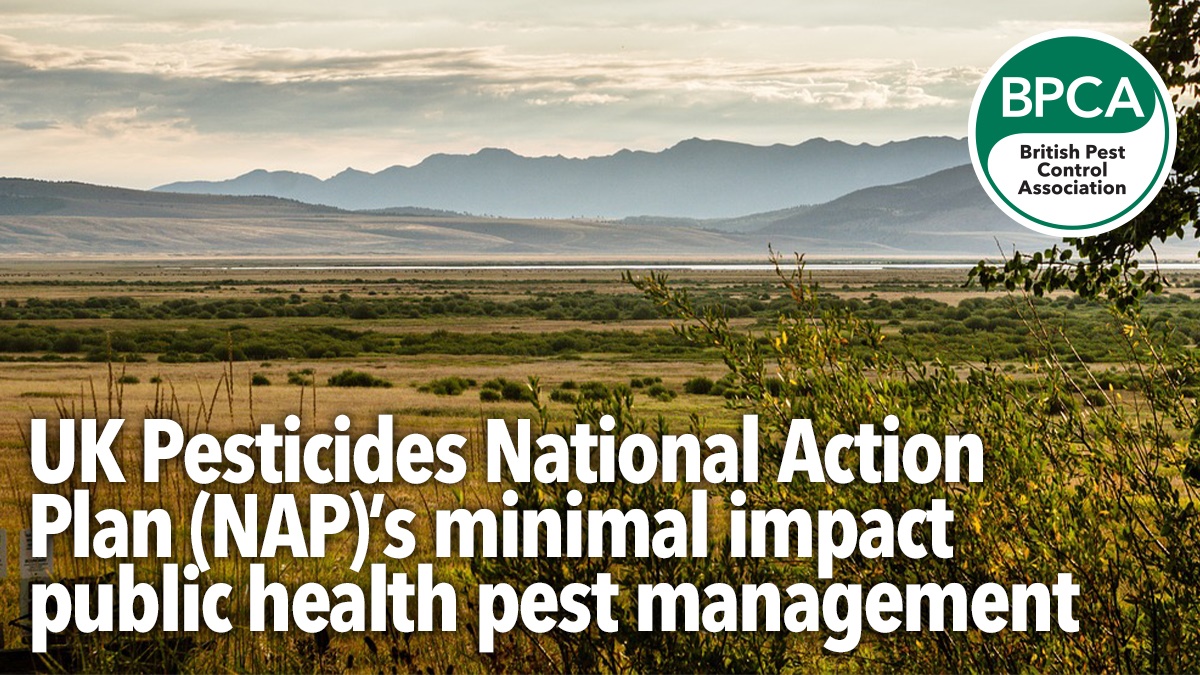The Government recently published the UK Pesticides National Action Plan (NAP) , setting out a strategy to reduce the environmental risk of pesticides by 10% over the next five years.
NAP is unlikely to have an immediate or drastic impact on BPCA members, but there are some potential long-term implications to be aware of.

What is the UK Pesticides National Action Plan?
NAP promotes sustainable pesticide use to protect human health, the environment, and food security. Key areas include:
• Encouraging Integrated Pest Management (IPM) to reduce reliance on pesticides
• Supporting innovation in bio-pesticides and precision technologies such as drones
• Strengthening regulatory enforcement through increased inspections and compliance measures
• Protecting pollinators by restricting harmful pesticides, including neonicotinoids.
Minimal immediate impact
The plan mainly targets agriculture, not public health professional pest control, meaning it will have minimal impact on BPCA members or our sector.
Professional pest controllers already use pesticides as a last resort, following Integrated Pest Management (IPM) principles.
Regulatory frameworks for pest control pesticides are already strict, so further enforcement may not significantly change day-to-day operations.
Possible long-term impacts
The main concern for the pest control industry is that our toolkit, like rodenticides, could come under further scrutiny down the line. This is a key issue facing our industry, which our public affairs work and our manifesto address.
We have already lost some pesticides from our toolkit, and some commonly used pesticides could be restricted in the future as the Government pushes for bio-pesticides and alternative solutions.
While enforcement is mainly aimed at agriculture, pest controllers could see tighter regulations or more frequent inspections over time.
If new requirements emerge, pest professionals may need to invest in additional training or adapt to alternative treatments, potentially increasing costs.
Opportunities
The emphasis on sustainable pest control may increase demand for trained, accredited professionals.
Those who work with professional pesticides should ensure that they have undertaken the relevant pesticide training or that they are supervised by someone who has.
The equipment you use should also be regularly tested and calibrated.
To maintain good practice, it is important that we all refresh our training regularly, incorporating IPM elements into practice wherever possible.
Members willing to invest in new products and precision pest control tools may benefit from future innovation in the industry.
Keeping updated
For now, NAP is unlikely to cause major disruption for our sector, but it signals a shift toward greater sustainability and potential future changes in pesticide regulations.
BPCA will continue to monitor developments and keep members informed about any direct impacts.
YOUR THOUGHTS?
Got any strong feelings toward the UK Pesticides National Action Plan? Send your thoughts to hello@bpca.org.uk
Source: